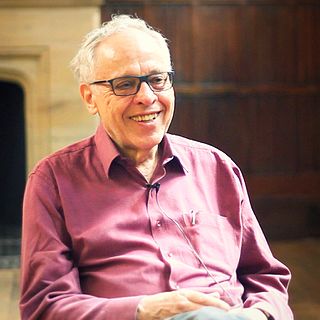A Quote by Rupert Sheldrake
The facts of science are real enough, and so are the techniques that scientists use, and so are the technologies based on them. But the belief system that governs conventional scientific thinking is an act of faith.
Quote Topics
Related Quotes
The confidence in the unlimited power of science is only too often based on a false belief that the scientific method consists in the application of a ready-made technique, or in imitating the form rather than the substance of scientific procedure, as if one needed only to follow some cooking recipes to solve all social problems. It sometimes almost seems as if the techniques of science were more easily learnt than the thinking that shows us what the problems are and how to approach them.
Those whose thinking is disciplined by science, like all others, need a basis for the good life, for aspiration, for courage to do great deeds. They need a faith to live by. The hope of the world lies in those who have such faith and who use the methods of science to make their visions become real. Such visions and hope and faith are not a part of science.
Science has long been in the value business. Despite a widespread belief to the contrary, scientific validity is not the result of scientists abstaining from making value judgments; rather, scientific validity is the result of scientists making their best efforts to value principles of reasoning that link their beliefs to reality, through reliable chains of evidence and argument.
Religion is based upon blind faith supported by no evidence. Science is based upon confidence that results from evidence - and that confidence can be modified and/or reversed by further observations and experimentation. Science approaches truth, closer and closer, by hard dedicated work. Religion already has it all decided, and it's in the book. It's dogma, unchangeable, and unaffected by reality and whatever facts we come upon in the real world.
[I]t is truth alone-scientific, established, proved, and rational truth-which is capable of satisfying nowadays the awakened minds of all classes. We may still say perhaps, 'faith governs the world,'-but the faith of the present is no longer in revelation or in the priest-it is in reason and in science.
The responsibility for the creation of new scientific knowledge - and for most of its application - rests on that small body of men and women who understand the fundamental laws of nature and are skilled in the techniques of scientific research. We shall have rapid or slow advance on any scientific frontier depending on the number of highly qualified and trained scientists exploring it.
Climate science has been targeted by a major political movement, environmentalism, as the focus of their efforts, wherein the natural disasters of the earth system, have come to be identified with man's activities - engendering fear as well as an agenda for societal reform and control... This greatly facilitates any conscious effort to politicize science via influence in such bodies where a handful of individuals (often not even scientists) speak on behalf of organizations that include thousands of scientists, and even enforce specific scientific positions and agendas.




































